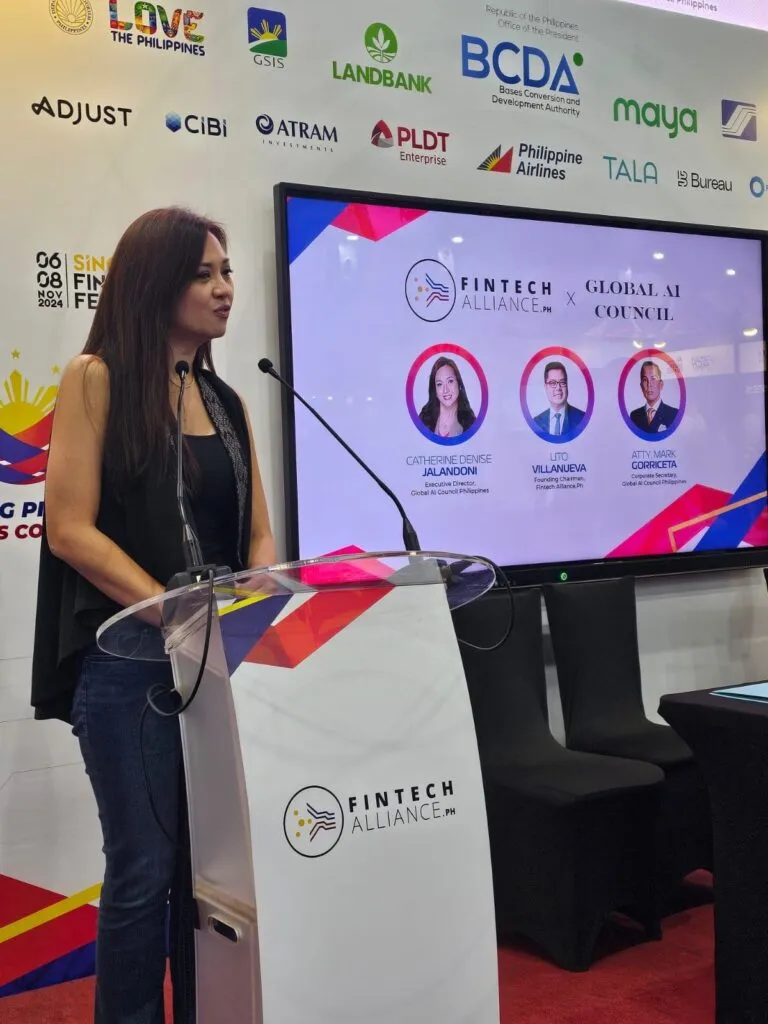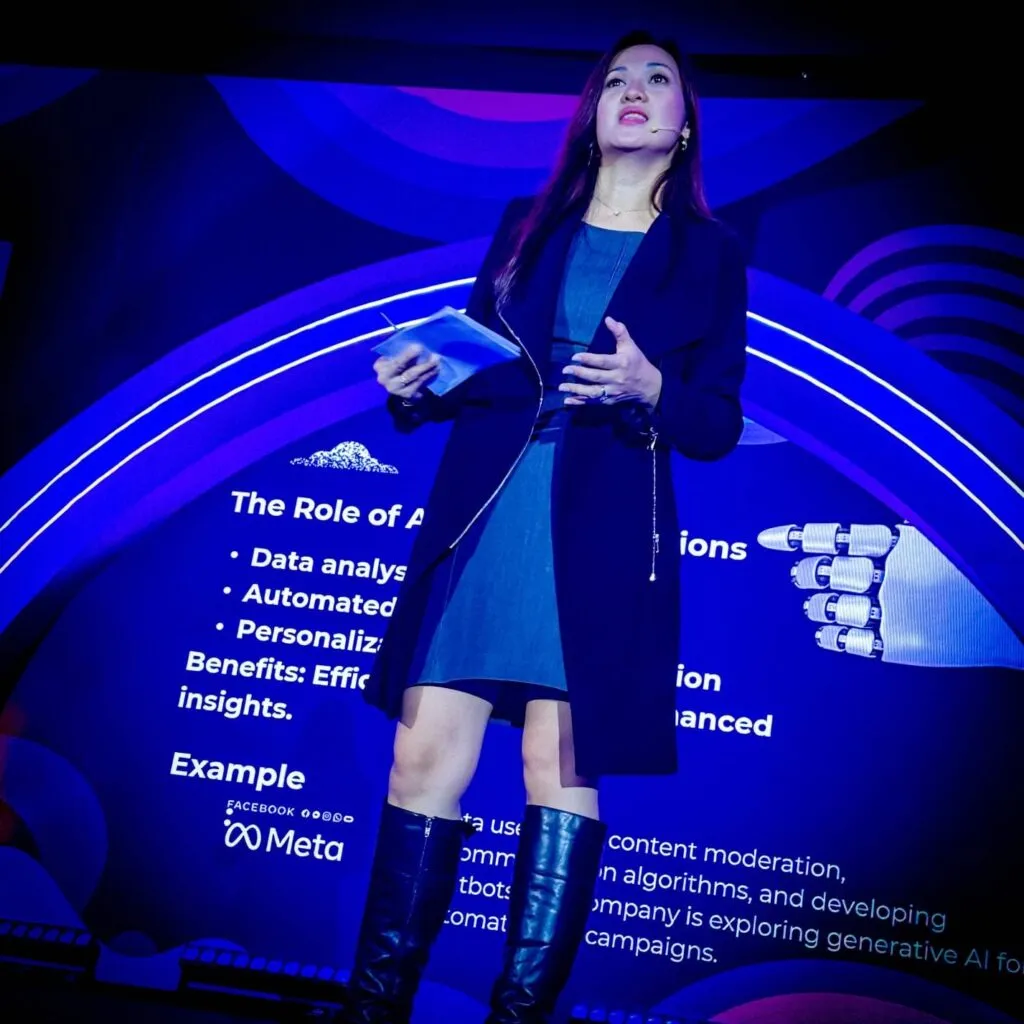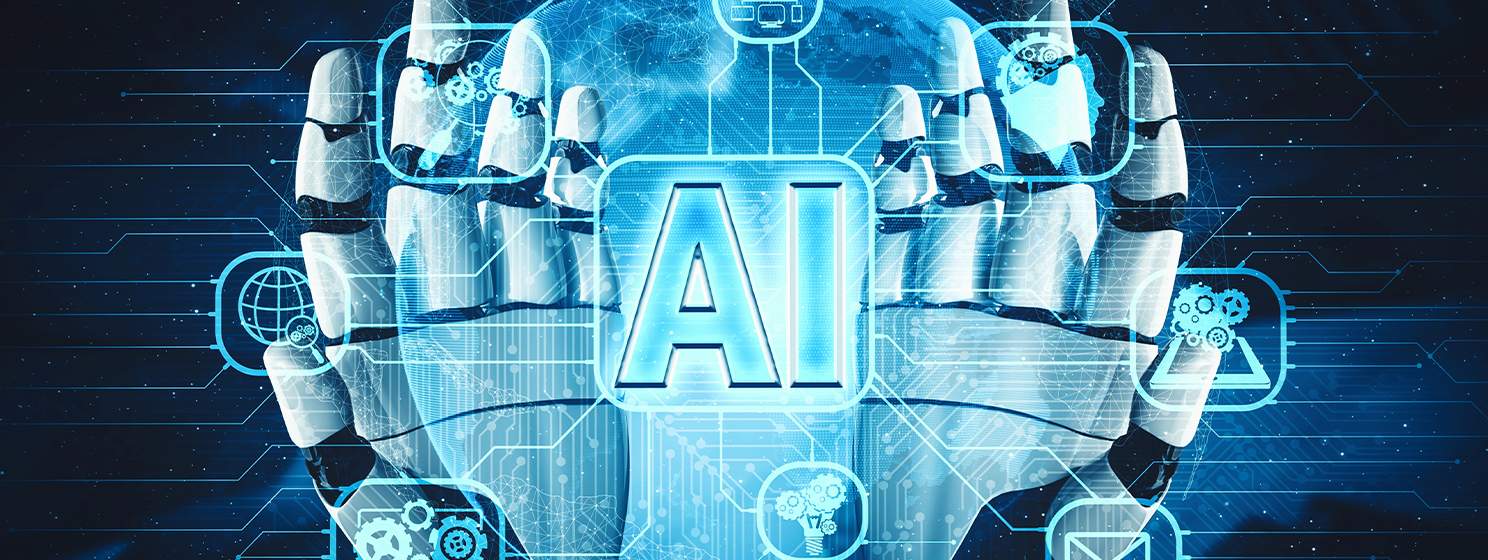|
Getting your Trinity Audio player ready...
|
Tech is often seen as a man’s world, but women like Catz Jalandoni are proving otherwise. She’s not just breaking barriers—she’s building new paths for others to follow. As the founder of the Global AI Council Philippines and Executive Director of the Institute of Corporate Directors, Jalandoni has taken a front-row seat in shaping the future of ethical artificial intelligence (AI) and corporate governance. But beyond her leadership in emerging technologies, she’s also a mother of five, balancing the demands of family life with her mission to drive innovation.

In a field where women still fight for visibility, Jalandoni stands as proof that expertise, leadership, and innovation have no gender. This Women’s Month, she shares her thoughts on AI, blockchain, and why more women need to step up and claim their space in tech.
What advice do you have for women looking to enter the tech industry?
Jalandoni: Women are already in tech, not just as a diversity checkbox but as real solution providers. Our ideas are multifaceted, and we bring valuable perspectives. The biggest challenge is often confidence—women need to assert themselves in spaces where they belong. My advice? Take the space, own your expertise, and don’t be afraid to push for change.
What trends in blockchain and AI excite you the most?
Jalandoni: AI-driven governance in blockchain is something I’m passionate about. Ethical AI and blockchain governance can help ensure resiliency and regulatory compliance. Companies should integrate safeguards into their systems to maintain transparency and accountability. AI can even be used to enhance cybersecurity, ensuring organizations stay compliant with evolving regulations.
How do you see AI and blockchain working together?
Jalandoni: AI and blockchain can complement each other, particularly in cybersecurity. Blockchain provides transparency and security, but once data is on-chain, it’s immutable—so careful gatekeeping is necessary. AI can help manage blockchain applications efficiently, but it must be done properly. Data quality is critical—if you input bad data, AI will only amplify the problem.
What are your thoughts on the Philippines’ roadmap for emerging technologies?
Jalandoni: Different government agencies are working on AI and blockchain roadmaps, and regulations are improving. However, the challenge is keeping up with fast-moving developments. The government recognizes the need for private-sector collaboration, particularly in talent development, infrastructure, and research. The Philippines has strong capabilities in automation and engineering—we just need to step up in adopting AI and blockchain more strategically.

In your previous interview with a local news network, you mentioned that Filipinos became early adopters of blockchain. How did that start, and how does it compare with the rise of AI today?
Jalandoni: Blockchain adoption in the Philippines started generally around 2017 when the local industry recognized it as a platform beyond mining and tokenizing assets. It has grown steadily, finding applications in industries like finance, gaming, and supply chain management. AI, on the other hand, has seen rapid expansion across multiple fields—from robotics to web searches—because of its ability to process and learn from vast amounts of data. The key difference is that AI can be prompted by more individuals and has the capacity to be self-developing, while blockchain remains the necessity of programmers to develop critical tool that enhances security, transparency, and efficiency but requires strategic human intervention to maximize its potential.
How should entrepreneurs approach using blockchain for their startups?
Jalandoni: Blockchain is a powerful technology, but it works best when integrated with other solutions. Startups should carefully assess whether blockchain fits their business model, whether they can afford the development costs, and whether partnerships with existing technologies make sense. It can be expensive if not mapped out properly, but there’s a strong community supporting blockchain adoption. The key is using it where it truly adds value.

Jalandoni is proof that women in tech aren’t just shaping the future—they’re defining it. Whether she’s championing ethical AI, driving corporate governance, or balancing life as a mother of five, she does it with conviction and purpose. Her story is a reminder that tech leadership isn’t just about expertise; it’s about having the confidence to take up space, challenge the norms, and pave the way for others to do the same.
In order for artificial intelligence (AI) to work right within the law and thrive in the face of growing challenges, it needs to integrate an enterprise blockchain system that ensures data input quality and ownership—allowing it to keep data safe while also guaranteeing the immutability of data. Check out CoinGeek’s coverage on this emerging tech to learn more why Enterprise blockchain will be the backbone of AI.
Watch: Women in Tech break down barriers to blockchain adoption

 09-06-2025
09-06-2025 





